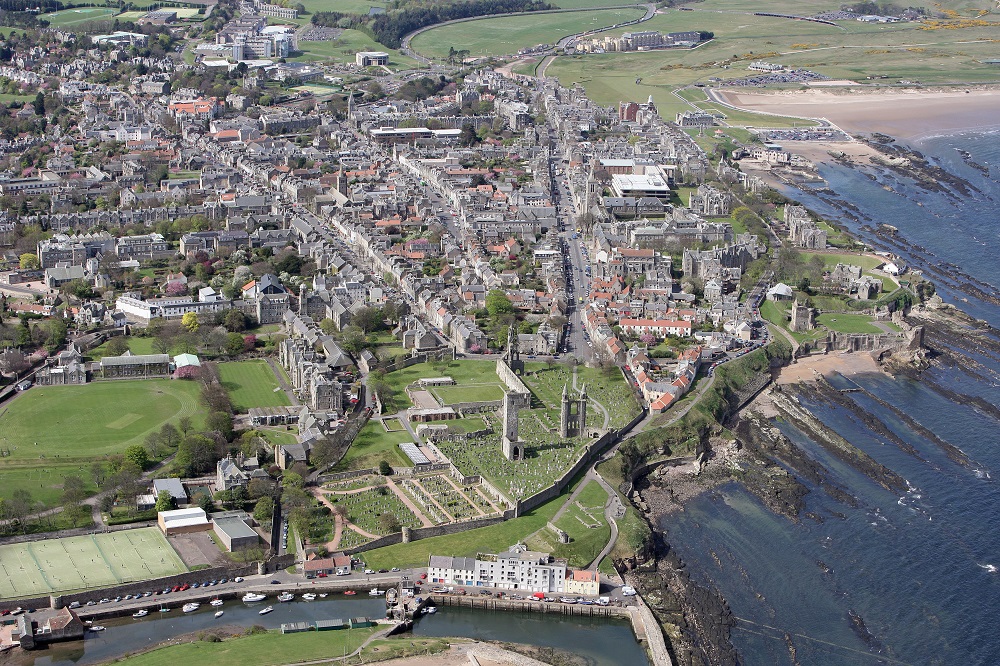University of St Andrews to slash carbon footprint
The University of St Andrews has embarked on a £3.75m energy conservation overhaul to reduce its carbon footprint by 950 tonnes a year and save £650,000, a year in operating costs.

Among the energy saving measures being deployed is a new district heating network to supply heat and power to University buildings in the centre of St Andrews, installing new energy efficient LED lighting, and fitting solar power units at the sports centre.
State of the art smart building management systems are to be installed and air handling unit fans and fume cupboards are to be upgraded.
The project was procured through the Scottish Government Non Domestic Energy Efficiency (NDEE) Framework and will be delivered by sustainable energy specialists Vital Energi who previously delivered the University’s £25m biomass energy scheme at Eden Campus.
The NDEE project will see improvements made to 30 University buildings representing in excess of 190,000m2 of floor space. The buildings were selected as they represent the highest energy usage across the campus, which equates to approximately 85% of the University’s annual energy spend.
St Andrews Quaestor Derek Watson said: “We are committed to reducing our carbon footprint and increasing our energy efficiency wherever possible as we move towards our goal of becoming carbon neutral for our energy use.
“This ambitious project, delivered by our partners Vital Energi, will enable the University to significantly improve the energy efficiency of our infrastructure and systems and allow us play our part in reducing carbon emissions and to save money to invest in world-class education and research in these difficult financial times.”
Vital Energi Operations Manager for Scotland Scott Lutton said: “The University of St Andrews are inspirational for their approach to lowering carbon, not only in the education sector, but the UK as a whole. They are clear in their ambition and have developed a long-term plan for becoming carbon neutral for energy and this is another significant step towards making that ambition a reality.
“The NDEE is a successful Scottish Government framework which allows organisations to balance their low-carbon ambitions with financial stability, ensuring that the improvements not only pay for themselves, but also generate a profit over the course of their design life.”
Vital Energi undertook an extensive audit during which they identified a number of energy saving measures.
These include:
• Enhancements to Heat Distribution Systems – This includes upgrading pumps from fixed speed to variable speed and installing 2-port control valves. Optimised system control will enable system efficiency and reduce energy usage.
• Fume Cupboard Upgrades – The University’s fume cupboards consume high amounts of energy and the introduction of variable speed extract systems and auto-sash closers will enable this to be significantly reduced.
• Building Management Systems – Installation of new smart campus technologies and optimisation of existing BMS installations will greatly improve the control of building HVAC systems and environmental conditions.
• Air Handling Unit Fans – The University has multiple aging fans and replacing these with modern, high efficiency EC fans will generate significant energy savings.
• LED Lighting Improvements – By replacing the existing aging lighting infrastructure with modern LED luminaires, the University are able to save between 50-60% of their lighting energy costs whilst improving lighting levels and user comfort.
• New District Heating Network – A new district heating network complete with combined heat and power (CHP) system will supply heat and power to a number of University buildings in the Old Town campus. This measure will reduce energy bills, consolidate existing heating plant, increase campus resilience and provide an expandable heating network for future building connections.
• Solar PV – The installation of a 100kWp solar PV array to the Phase 3 Sport Centre roof, generating carbon-free electricity.



















